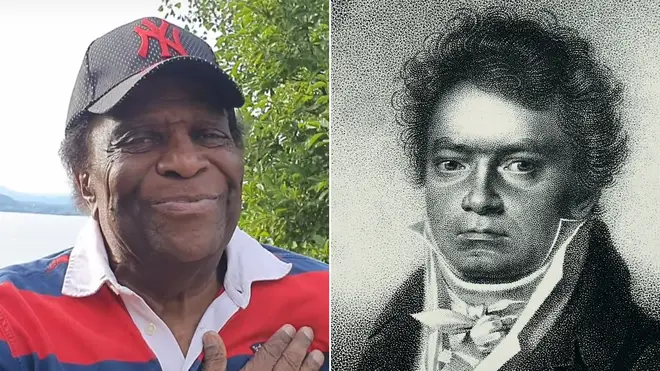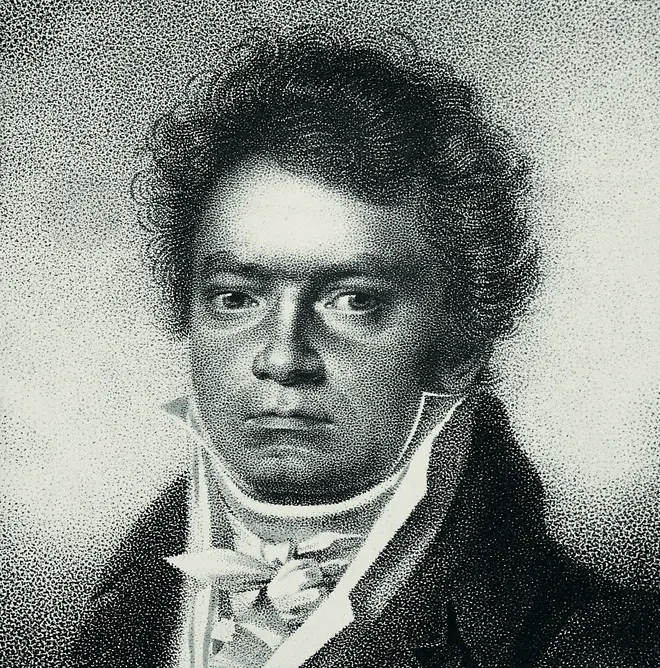On Air Now
Calm Classics with Ritula Shah 10pm - 1am
4 October 2021, 16:21 | Updated: 6 October 2021, 19:01

The classical composer who died almost 200 years ago, has been at the centre of a race debate for over a century; but does this mean we should disturb his grave?
German singer, Roberto Blanco, has called on the Mayor of Vienna to exhume Beethoven’s body for a racial DNA test.
The request is the latest in an over century old debate about the ethnicity of the German-born classical music giant. Beethoven died in Vienna in 1827, and Blanco addresses the city’s Mayor in a public YouTube video. He states his reasoning for the ask is ‘so that we can see if he looks more like you or me.’
Blanco, who is of Afro-Cuban origin, was born in Tunisia, before moving to Germany and becoming a singer in the early 50s.
The 84-year-old beloved singer has recorded multiple hit albums and appeared on a number of music variety shows.

Zum Michaelistag: ROBERTO BLANCO für Wien-OB Dr. Michael Ludwig, die #Blackalike #BrotherLouis-Wette
While the question of Beethoven’s race has been in question for over a century, the theory regarding his ethnicity resurfaced in 2015.
A student-run Minnesota newspaper, The Concordian, had suggested a “white-washing” of the composer’s legacy, citing descriptions of the composer as having a “wide, thick-lipped mouth, short, thick nose, and proudly arched forehead”.
Also known as cultural whitewashing, “white-washing” in this context is the practice where historians, artists, and other documenters highlight ‘white’ as the primary and dominant race, consequently pushing or entirely removing ethnic minorities from the record.

Examples include Jesus’ depiction as a white man, despite living in a Middle Eastern country, the original Barbie doll depicted as a blonde white girl, and countless Hollywood films in which white actors are cast in non-white roles.
Most records state that Beethoven’s genealogy was Flemish; however, those who champion the racial theory, suggest that his mother, Maria Magdalena, was of Moorish descent.
Leading Beethoven expert and Classic FM presenter, John Suchet, commented last year that it is possible that Beethoven had Moorish blood, but “it is likely to have come from the paternal line, as opposed to his mother’s side.”
He also commented on Beethoven’s alleged dark features saying: “Beethoven’s dark complexion was frequently commented on.
Listen on Global Player: Beethoven: The Man Revealed, a podcast presented by John Suchet

Podcast: Beethoven – The Man Revealed with John Suchet
“At school in Bonn he was nicknamed ‘The Spaniard’. Soon after arriving in Vienna in his early twenties, Prince Anton Esterhazy is quoted as calling him ‘a Moor’.”
We’re unsure whether Blanco’s video will be met with a response from the Mayor of Vienna, but it has already received a response from multiple international outlets and on social media.
Like the media reaction to last year’s coverage of this debate, we are glad to see this opportunity being used by multiple platforms to showcase black composers’ music.
Beethoven was one of the most important composers of all time, and here are a few more who we think deserve the spotlight.